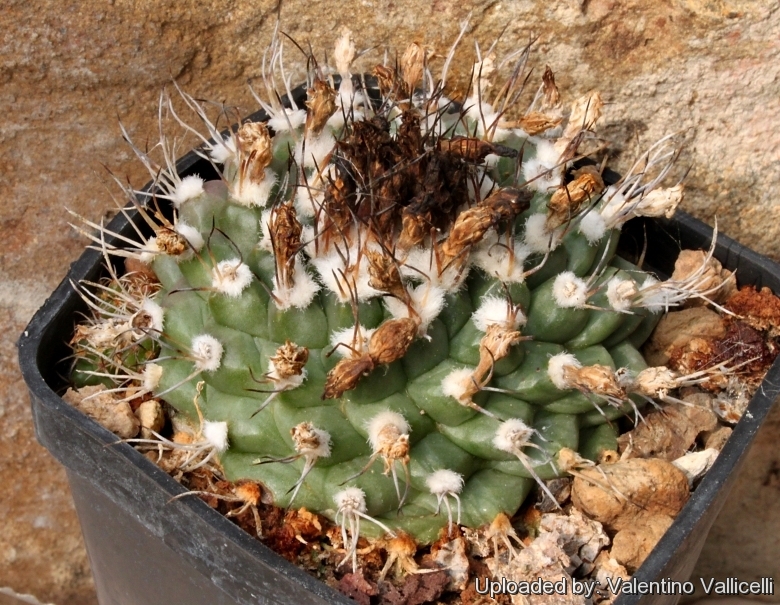
Turbinicarpus swobodae Photo by: Valentino Vallicelli
L1499 Rayones, N.L. Mx.
Origin and Habitat: Rayones, Nuevo Leon, Mexico.
Synonyms:
Description: Small solitary, depressed rarely offsetting geophyitic cacti, partly underground.
Body: Upper visible part flat to hemispherical, up to about 5-6 cm wide, up to about 2-3 cm high, dark grey-green - pale blue-green (brownish when dried in the sun), Lower, not visible part ± short cylindrical, narrowing at the base, densely covered with the old, dried up tubercles.
Areole:: On the tip of the tubercle, with white, felt composed of short hairs, later becoming yellowish-brownish and ultimately becoming bare. This felt is densest and longest lasting on the upper half of the areole.
Root: Thickened but not turnip-like, which branches greatly, however not forming an extensive root system
Spines: 4-6 from the lower half of the areole, bristle-like, piercing, not paper-like; the lowest 2-3 mostly the shortest, about 4-7 mm long; the upper about 5-13 mm long; all spines, ± curved towards the apex and/or diagonally to the sides, almost completely black or only top part black, lower section whitish - pale grey, young spines partly horn coloured; later becoming ± completely grey, easily removed from the Areole, often as a whole bundle.
Flowers: From the apex, wide, funnel-shaped, about 13-22 mm wide, on the outside pale greenish-white, on the inside white-cream to very pale yellow, both sides always with plain purple-reddish-brownish mid-stripe. Stamens with glassy white filaments and dark yellow anthers curved towards the style at full anthesis.
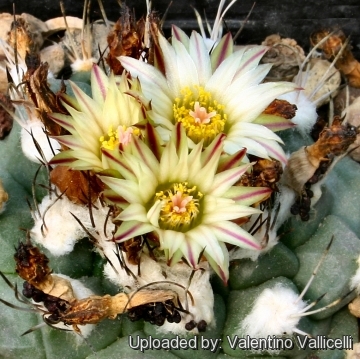 Turbinicarpus swobodae Photo by: Valentino Vallicelli
Turbinicarpus swobodae Photo by: Valentino Vallicelli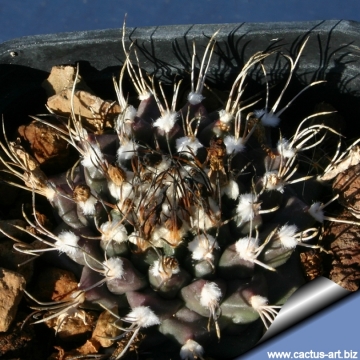 Turbinicarpus swobodae Photo by: Cactus Art
Turbinicarpus swobodae Photo by: Cactus Art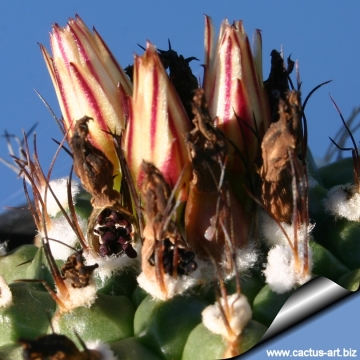 Turbinicarpus swobodae Photo by: Cactus Art
Turbinicarpus swobodae Photo by: Cactus Art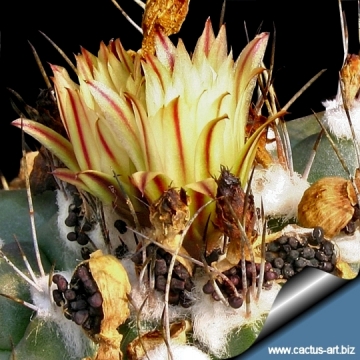 Fruits are dry capsules, at first greenish, with increasing maturity brownish, drying out and opening with a vertical split. Photo by: Cactus Art
Fruits are dry capsules, at first greenish, with increasing maturity brownish, drying out and opening with a vertical split. Photo by: Cactus Art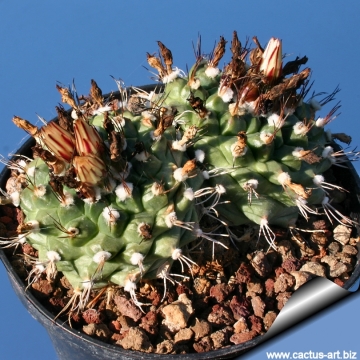 Turbinicarpus swobodae Photo by: Cactus Art
Turbinicarpus swobodae Photo by: Cactus Art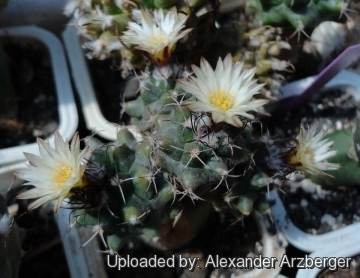 Turbinicarpus swobodae Photo by: Alexander Arzberger
Turbinicarpus swobodae Photo by: Alexander Arzberger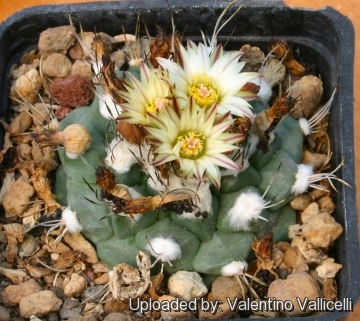 Turbinicarpus swobodae Photo by: Valentino Vallicelli
Turbinicarpus swobodae Photo by: Valentino Vallicelli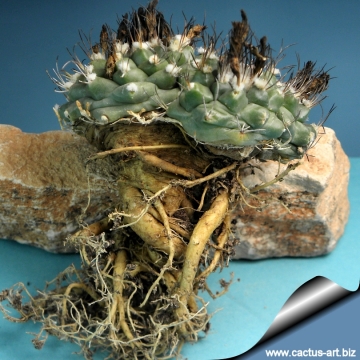 Turbinicarpus swobodae Photo by: Cactus Art
Turbinicarpus swobodae Photo by: Cactus ArtCultivation and Propagation: It’s a fairly easy and robust species to cultivate, but slow growing. It needs a very well-drained soil, and requires strong sun to part sun to keep the plant compact and low and to develop a good spinal growth. Waterings should be rather infrequent to keep the plant compact, and avoid its becoming excessively elongated and unnatural in appearance. Furthermore it has a tap root, and watering it properly is often difficult, because it tends to crack open or rot if over-watered. Careful watering away from the body of the plant will allow the areoles to keep their wool. Keep dry in winter, or when night temperatures remain below 10° C. It is hardy to -4°C for a short period. Assure a good ventilation.
Reproduction: From seed, since the plant rarely produces plantlets, or grafted.
Your Photos
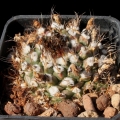
by Valentino Vallicelli
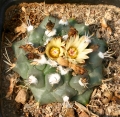
by Valentino Vallicelli
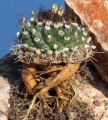
by Valentino Vallicelli
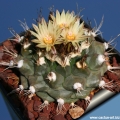
by Cactus Art
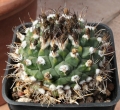
by Valentino Vallicelli























